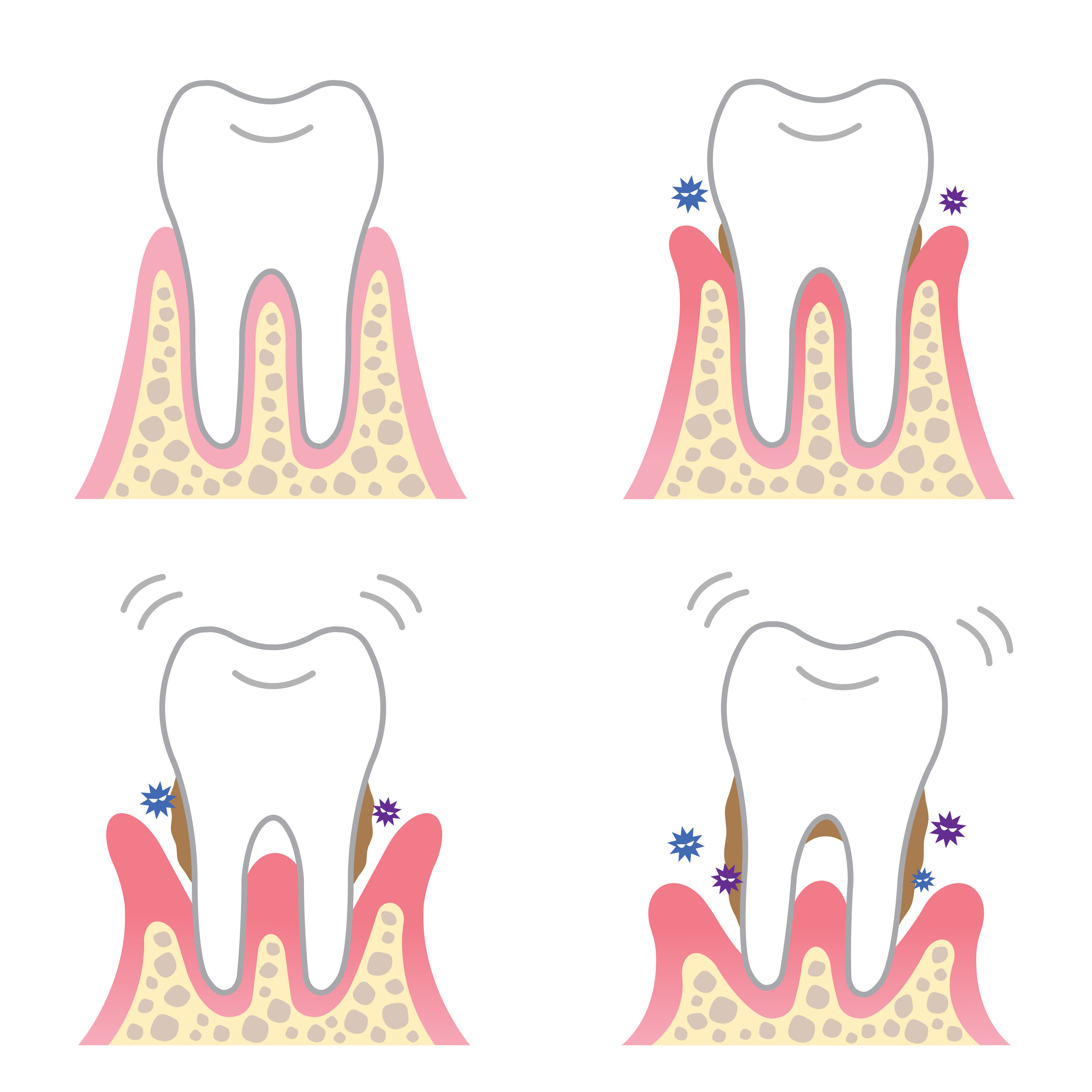What is Periodontitis?
While playing hockey may be one of the biggest causes of smile gaps up here in Canada, not all causes are quite as obvious as a hockey puck. Periodontal disease can creep in where you’re not looking, causing inflammation and infection of the gums and bone surrounding and supporting teeth, often resulting in tooth loss.
We’ve explored the milder form of periodontal disease in the blog, What is Gingivitis? and now we’ll cover the more serious form, called periodontitis.
What is periodontitis?
Periodontitis is a progressed form of inflammation (gingivitis) where the gums begin to pull away from the tooth, which can lead to loose teeth, and even tooth or bone loss. It’s typically caused by poor dental hygiene.
Early-stage periodontitis
In the early stages of this disease, small pockets develop between your teeth and gums. Inside these pockets, harmful bacteria reside, and as your immune system tries to fight off the infection, your gums will begin to recede. When brushing your teeth and flossing, your gums will likely bleed and, even in the early stages, you may experience some bone loss.
Moderate-stage periodontitis
If left untreated, your teeth will start to lose bone support and become loose. You will likely experience pain and bleeding around your teeth and gum line, and the infection will trigger an inflammatory response throughout your body.
Advanced-stage periodontitis
If periodontitis is allowed to progress to this stage, the connective tissue holding your teeth in place deteriorates, leading to the destruction of gums, bones and other vital tissues that support your teeth. You will likely experience pain while chewing, extreme halitosis (bad breath), and tooth loss.
Long-term consequences of periodontitis
It’s not just your teeth and bone structure that can suffer consequences of inaction.Other complications of periodontitis include:
Painful abscesses
Teeth migration
Root exposure
Increased risk of complications during pregnancy (such as low birth weight and preeclampsia)
Increased risk of heart disease, respiratory disease and diabetes
Symptoms of periodontitis
Like gingivitis, there are some tell-tale signs you may be dealing with peridontitis. Depending on the stage of periodontitis, symptoms can include:
Bleeding gums (especially during brushing or flossing)
Halitosis (bad-breath)
Foul taste in your mouth
Loose or shifting teeth
Tooth loss
Receding gumline
Gum inflammation (redness, tenderness, or swollen)
Plaque or tartar buildup on teeth
Pain when chewing
Inflammatory response throughout your body
How to treat periodontitis
The good news is, there’s plenty you can do to treat this disease, but it’s critical to act fast. The following are ways to treat (and prevent) periodontitis:
Proper oral hygiene — twice a day brushing with a fluoride toothpaste, once per day flossing to remove dental plaque, avoiding smoking and tobacco-use and regularly visiting the dentist.
Professional dental cleanings — Dental cleanings are one of the best ways to remove plaque and tartar build-up. That means routine visits are essential and you should aim to book in every six months.
Antiobiotics — To treat the infection, antibiotics are often prescribed to help stop the infection in its tracks. This may be in the form of a mouthwash, gel or an oral tablet.
Surgery — Sometimes dental surgery (such as flap surgery) is needed to deep-clean gums and preserve your oral health. If you’ve experience bone loss, then a bone grafting procedure may need to be done to regenerate lost bone.
The team at our Lethbridge dental clinic is experienced in treating all forms of periodontal disease and we can help you get your smile back on track.
Catching the issue early
The best time to treat periodontitis — and any periodontal disease for that matter — is now. The longer you wait, the more damage, pain and cost the disease can cause down the road.
If you suspect you have periodontitis, or any other gum problem, please make an appointment with Peak Dental today.
Our Lethbridge dentists will be happy to assess your condition and recommend the best course of treatment.

